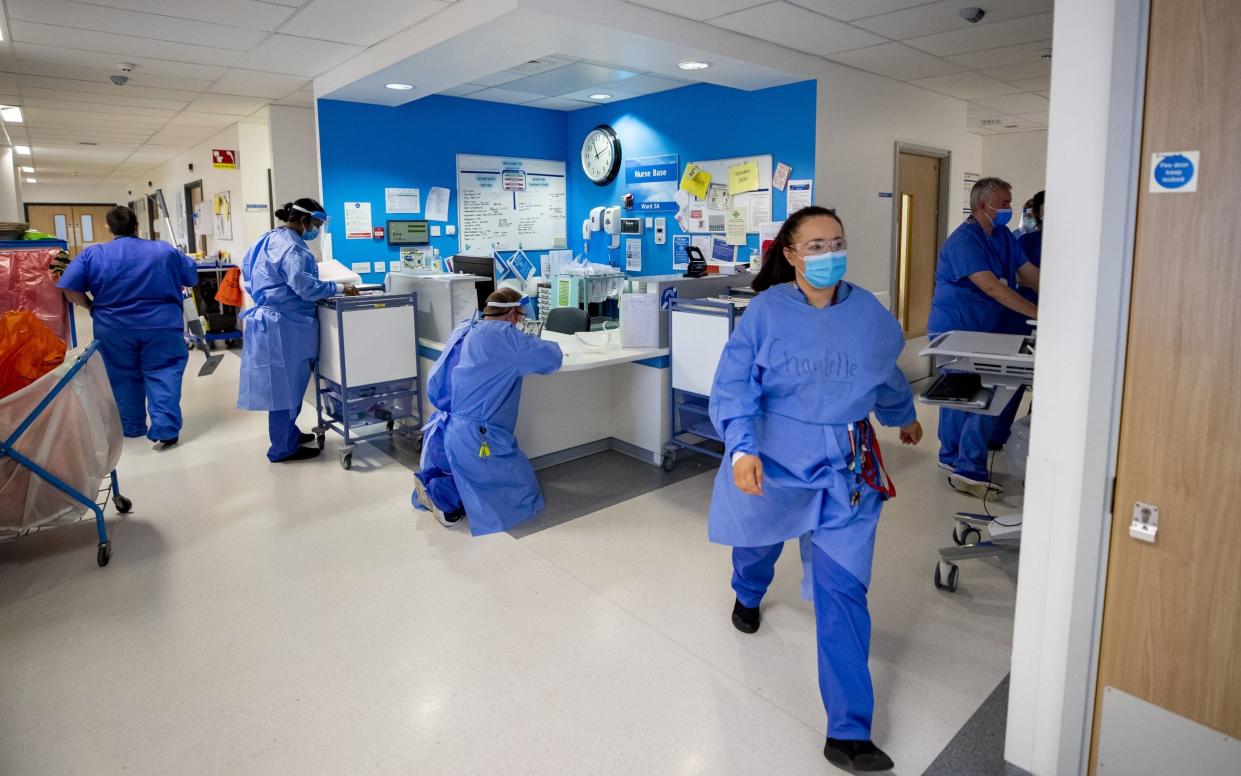NHS 'wrong to tell cancer patients to delay treatment during Covid'

NHS hospitals were wrong to tell cancer patients to postpone treatment during the first Covid wave, a major study suggests.
New data has found that patients in need of chemotherapy, immunotherapy and surgery fared better on average if they continued with treatment on the normal timetable, even if they caught coronavirus.
The findings undermine the initial stance taken by medical leaders, who feared that patients undergoing treatments that suppress the immune system would be at huge risk of death from the virus.
Last March, this led the National Institute of Health and Care Excellence (Nice) formally to advise oncologists to consider warning patients to stay away from hospitals, many of which were Covid hotspots.
The guidance said: “They should balance the risk from cancer not being treated optimally versus the risk of becoming seriously ill if they contract Covid-19 because of immunosuppression.”
It meant potentially thousands of treatments were deliberately postponed, on top of those which could not practically take place in hospitals overwhelmed with Covid patients.
However, data shortly to be published by the UK Coronavirus Cancer Monitoring Project shows that for patients in need of chemotherapy, there was no added risk to undergoing the treatment compared to having no treatment or a different treatment.
For cancers involving a tumour, there was actually an advantage to continuing with chemotherapy, despite the Covid risk.
The same was true of patients in need of immunotherapy, hormonal therapy and surgery.
Professor Gary Middleton, who leads the project at the University of Birmingham, said: “We're pretty sure that we should be putting out the message, very, very, very loud and clear that it's safer for patients with cancer to receive chemotherapy and immunotherapy.
"We've got to accept the fact that if we're not giving these treatments we're doing our patients a disservice.”
He said initial data from the initial virus hotspots of Wuhan and northern Italy had been misleading about the risk to immunosuppressed patients.
Prof Middleton also said the NHS faces a potential legal “minefield” due to delayed cancer surgery as a result of Covid pressure on hospitals.
"People understand Covid but at the end of the day, when you're the person that's got the cancer that's progressing to a point at which you're no longer operable or which you're at higher risk of metastatic progression, then that's terrible for that patient, so I think there's going to be a huge amount of this.”
He added that an "inordinate" amount of time could be spent on complaints and could be "enormously expensive at a time at which the NHS is absolutely on its knees".
An NHS spokesperson said: “Cancer services have remained open throughout the pandemic and we have continued to remind people it is safe to come forward for checks and treatment, including chemotherapy which according to the most recent data is running at the same level it was a year ago. In both waves, clinicians have made decisions based on the best and safest treatment options for patients. ”

